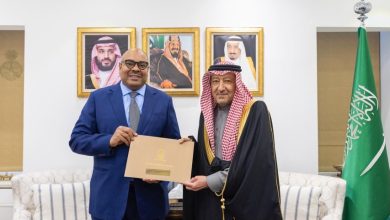Tanzania’s health, agriculture sectors reap fortunes from TBPL products

KIBAHA: THE Permanent Secretary in the Ministry of Industry and Trade, Dr Hashil Abdallah, has stated that the Tanzania Biotech Products Ltd (TBPL) factory has become a vital pillar in both the health and agriculture sectors by producing biological insecticides used to fight malaria-carrying mosquitoes and crop-damaging pests.
Dr. Abdallah made these remarks today, October 16, 2025, during a brief ceremony launching the 10th anniversary celebrations of the factory held in the Coast Region. He noted that Tanzania has made significant progress in reducing its dependency on imported products, aligning with the vision of the sixth-phase government to strengthen local industries and build a competitive national economy.
“Through TBPL’s production, we’ve witnessed the annual production of thousands of liters of biological insecticides, an increase in the national capacity to control epidemic diseases, job creation, and TBPL’s significant contributions to research, innovation, and capacity-building of local professionals within the United Republic of Tanzania,” said Abdallah.
Additionally, Abdallah emphasized that over the past 10 years, TBPL has been a model of successful collaboration between the government and the private sector, demonstrating how disciplined, accountable, and innovative implementation of industrial policies can yield positive results.
For his part, the Chairperson of TBPL’s Board, Dr. Allan Ulula, said the factory has made a major impact on both individual livelihoods and the national economy by helping protect public health through malaria prevention and contributing to agricultural productivity with products like fertilizers.
Dr. Allan also thanked the government for its efforts in establishing, supervising, expanding, and sustaining the factory over the past decade, as well as being the lead buyer of its products.
Meanwhile, the General Manager of the factory, Engineer Rafael Rodriquez, said that in the next 10 years, the factory has various plans, including increasing production. He urged TAMISEMI (President’s Office – Regional Administration and Local Government) and NDC (National Development Corporation) to sign the OFTIC agreement to enable easier distribution of the insecticides.
ALSO READ: TBPL anti-mosquito sales jumps 8.0pc in one year
The investor also mentioned that the factory symbolizes the partnership between Cuba and Tanzania, adding that the Cuban government has pledged continued cooperation with Tanzania to bring in various technologies that can be utilized in the factory.
The Executive Director of the National Development Corporation (NDC), Dr. Nicholas Shombe, stated that the factory has the capacity to produce anti-malaria drugs and distribute them to more than seven countries, including Kenya, Mozambique, Botswana, Nigeria, Niger, Angola, Bangladesh, Sri Lanka, and others.
Dr. Shombe added, “We have increased the capacity for producing biological products used in the health and agriculture sectors. We have employed and built the capacity of over 200 young Tanzanians in fields such as science, research, and technology. We’ve invested in modern laboratory and industrial infrastructure that meets international standards. We’ve contributed to improving public health through safe, high-quality products made here in the country.”
The Government Chief Pharmacist, David Masasi, said that the factory has already received a total of 11.5 billion shillings, and in this year’s budget, it has been allocated 10 billion shillings, which will be fully disbursed. He further noted that the factory’s investment has contributed to the decline of malaria cases in the country, from 14 percent in 2015 to 8.1percent currently. Therefore, with the correct use of these medicines and continued government funding, malaria prevalence will continue to decrease.
Masasi also urged the factory owners to ensure continuous improvement of the factory’s production because the government is ready to fund and purchase the insecticides. He encouraged them to maintain quality and pursue necessary certifications to enable large-scale international trade without restrictions. He also called on the public to heed expert advice and use these products to help eradicate malaria.





